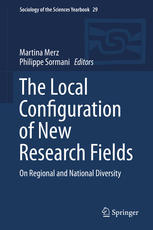

Most ebook files are in PDF format, so you can easily read them using various software such as Foxit Reader or directly on the Google Chrome browser.
Some ebook files are released by publishers in other formats such as .awz, .mobi, .epub, .fb2, etc. You may need to install specific software to read these formats on mobile/PC, such as Calibre.
Please read the tutorial at this link: https://ebookbell.com/faq
We offer FREE conversion to the popular formats you request; however, this may take some time. Therefore, right after payment, please email us, and we will try to provide the service as quickly as possible.
For some exceptional file formats or broken links (if any), please refrain from opening any disputes. Instead, email us first, and we will try to assist within a maximum of 6 hours.
EbookBell Team

0.0
0 reviewsThis new Yearbook addresses the question of how policy, place, and organization are made to matter for a new research field to emerge. Bringing together leading historians, sociologists, and organizational researchers on science and technology, the volume answers this question by offering in-depth case studies and comparative perspectives on multiple research fields in their nascent stage, including molecular biology and materials science, nanotechnology, and synthetic biology. The Yearbook brings to bear the lessons of constructivist ethnography and the “practice turn” in Science and Technology Studies (STS) more broadly on the qualitative, comparative, and critical inquiry of new research fields. In doing so, it offers unprecedented insights into the complex interplay of national research policies, regional clusters, particular research institutions, and novel research practices in and for any emerging field of (techno-)science. It systematically investigates national and regional differences, including the variable mobilization of such differences, and probes them for organizational topicality and policy relevance.